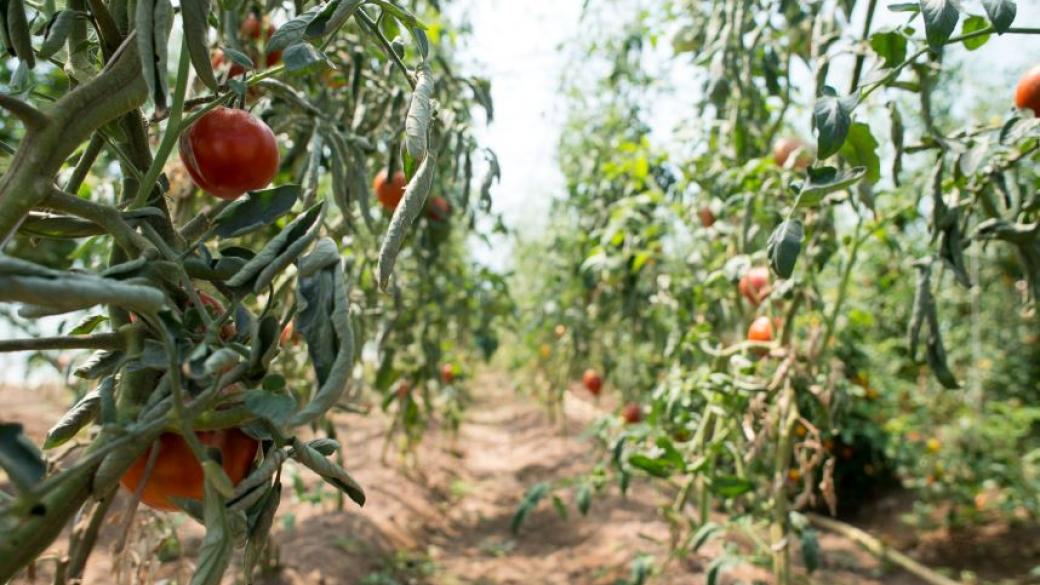The Bio Market Relies on Trust and Personal Approach
Natural products are becoming more accessible via the Internet, but the only chance for consumers to taste them is in the shops and on the markets

© ECONOMIC.BG / Икономика
Consumers of bio and organic certified products are becoming more and more, but they are also changing. The trust crisis in Bulgarian and imported bio-foods has catalysed changes in their supply. We used to look for them in specialised shops and farmers’ markets, but today, we can find these products in super and hypermarkets, and the online trading accounts for about 50-55% of the organic food sales, according to an expert study published in Capital newspaper in May 2019. Last year, however, one of the most recognizable online e-commerce bio product platforms ceased operations, and this raised questions about the challenges in the sector.
Veselina Ralcheva of the Bulgarian Bio Products Association says that between 2011 and 2017, the number of producers, processors and traders in the sector increased dramatically. At the same time, “the administration cannot cope and change its habits and audits at such a pace.” It reassures consumers that serious bio-producers are complying with all requirements and this remains one of the most inspected sectors. But consumers are becoming more critical. “A serious development can be noticed in the culture of consumption of organic and bio products. Buyers want them to be Bulgarian, produced with less or zero carbon emissions, to be regional or local products, to know their history, to be biodegradable,” says Zhivko Dzhamyarov, founder of Ancestral Superfoods – a company that manufactures protein blends from Bulgarian fermented sprouts and raw materials by a German technology.
Zivko relies on a mixed sales model, consolidating his consumers in an online community and through his own media, but selling in specialised shops. He is developing his brand entirely according to the trends described by the Doxee marketing experts. In their opinion, the sustainability of the products and the whole process associated with them, the healthy lifestyles, and the community building are the foundations of trust in this sector. “Trust towards bio and organic foods has been slightly shaken, due to the chaos with the granting and withdrawal of licenses by the Ministry of Agriculture and the controlling bodies of the Bulgarian Food Safety Agency (BFSA). While manufacturers have established strict controls, there is no certification of online shops along the chain because of the packaged foods. So, for now, despite the rise of online commerce, physical trading is better developed. Online, it can be easier to tell the story of the product, make the information more accessible, or reach the consumers faster, but they can’t taste it like in a physical shop,” Zhivko sums up.
Kunka Petkova, co-founder of BIO WAY OOD, a company that produces bio shiitake mushrooms, prefers farmer’s markets and physical shops. According to her, trust in bio products is growing, but this is the result of enhanced human communication on the subject. Kunka is a co-organizer of the Natural Farmers’ Market in Plovdiv. She has put much of her experience, accumulated on a weekly basis in such events, into its management. “This is a mission for us, because it allows for a personal encounter with consumers, for feedback. “Natural” is a long-term project, but each month we sign a contract with the municipality and organize the marketing of the event ourselves. The municipal fees for such events are high, and so are the prices for producers. This makes such an activity recommendable for marketing, but often without any financial return,” Kunka says.
“Farmers’ markets are a mission, a marketing tool, but often with no financial return,” Kunka Petkova says (photo with her husband Stoyan Asenov)
At the entrance of “Natural”, BFSA representatives check the market participants, and for bio-certified products they rely on the certification companies. Zhivko adds that self-regulation and the requirement for quality in the sector itself is the greater guarantee of the latter. According to him, sustainable bio producers will be sifted out, and bio-products will enter the supermarkets for good. This will probably create difficulties for the small shops, but they will sell Bulgarian and local products with personal history and traceability.
“We fight for consumers’ trust with online and offline campaigns, events, meetings for direct dialogue with them,” Zhivko Dzhamyarov says
“The most important thing is for the state not to impede. Manufacturers need to research what to produce, according to their land and according to the market. The change will come from consumers in order for a sustainable and ethical business to be built.” Kunka concludes with a smile: “The history of bio products and the relationships with people are not regulated – they always sell, as long as they are natural.”
